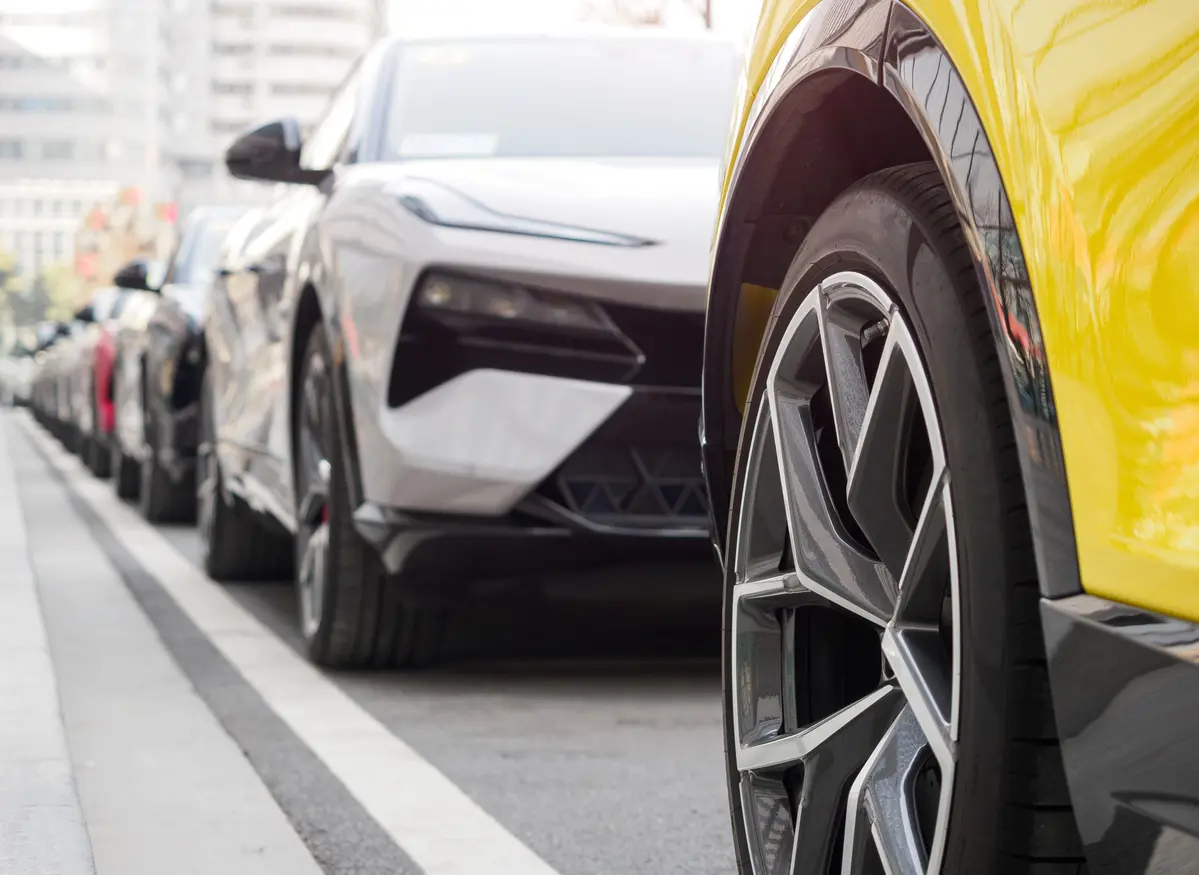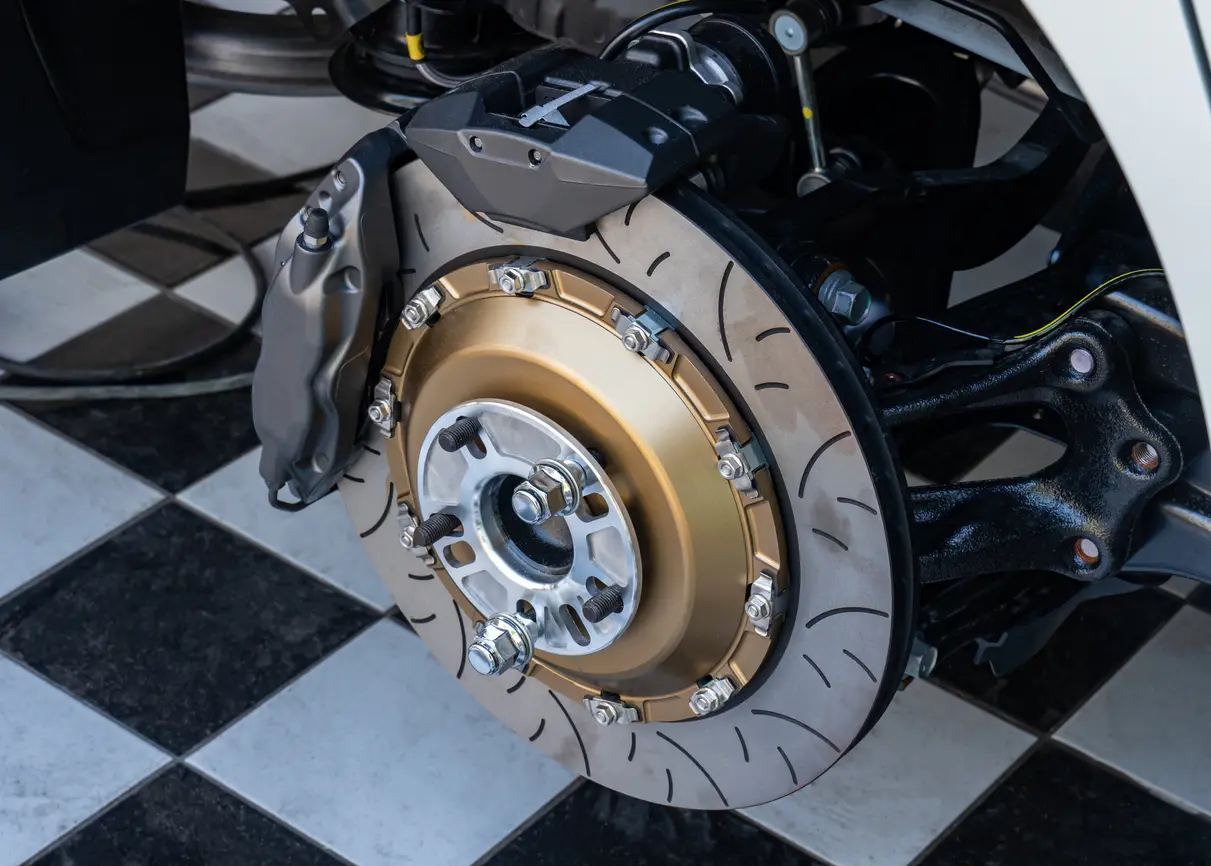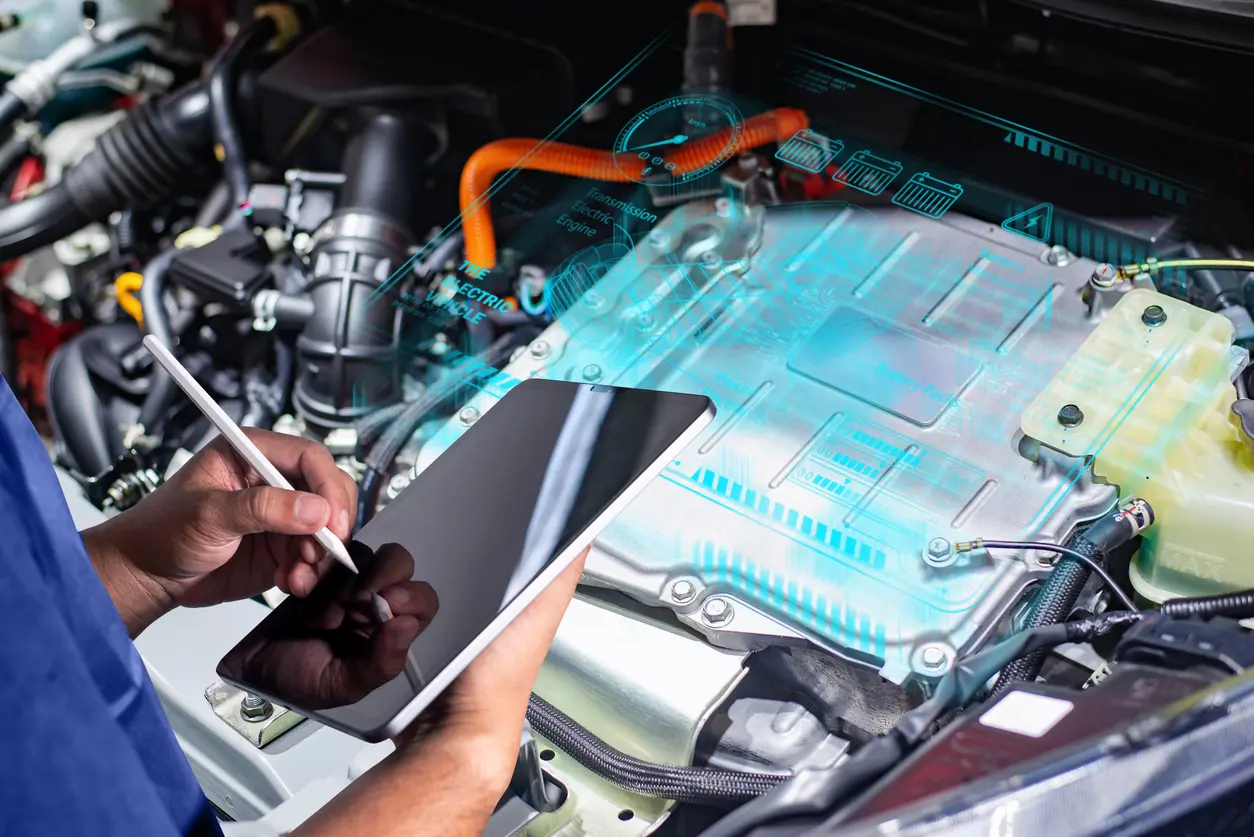Air Conditioning and Heating Systems for Electric Vehicles
Unlike internal combustion engine vehicles that generate heat to warm the cabin, electric vehicles use their own energy for heating and air conditioning. These systems play an essential role in passenger comfort and overall efficiency.
Electric vehicles mostly use heat pump systems and a compressor. These devices transfer heat from the environment to the interior of the vehicle and are efficient, even at low temperatures. This technology enables the cabin to be heated without relying solely on electric resistance heating, which tends to consume more energy.
Cabin Air Filter Inspection and Replacement
Your vehicle’s cabin air filter should be inspected every year, and replaced according to the manufacturer’s recommendations. The rule of thumb is to replace the filter every year. With the heating, ventilation, and air conditioning system in constant operation, the filter is under great strain. If it is clogged, you could lose precious kilometres due to increased heat pump operation.
Periodic inspections of the entire HVAC system help ensure a more enjoyable and efficient driving experience.
Your local NexDrive centre can provide you with expert advice and help maintain your vehicle.
Tips and Tricks

Why do electric car tires wear out so fast?
EV tires experience increased tread wear because of instant torque and unsprung weight. Learn why electric vehicles lead to worn-out tires and how to extend the lifespan of EV tires with proper maintenance.

Why regenerative braking is bad for your brake pads
Regenerative braking improves energy efficiency, but can cause brake pad issues because of reduced mechanical brake use. Learn how to maintain your brake system and prevent costly repairs in this article.

Does an EV need regular general maintenance?
Although EVs require less maintenance than gas-powered vehicles, they still need regular care. Learn about battery health, brake maintenance, and more here.

